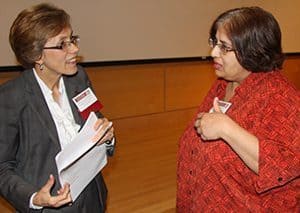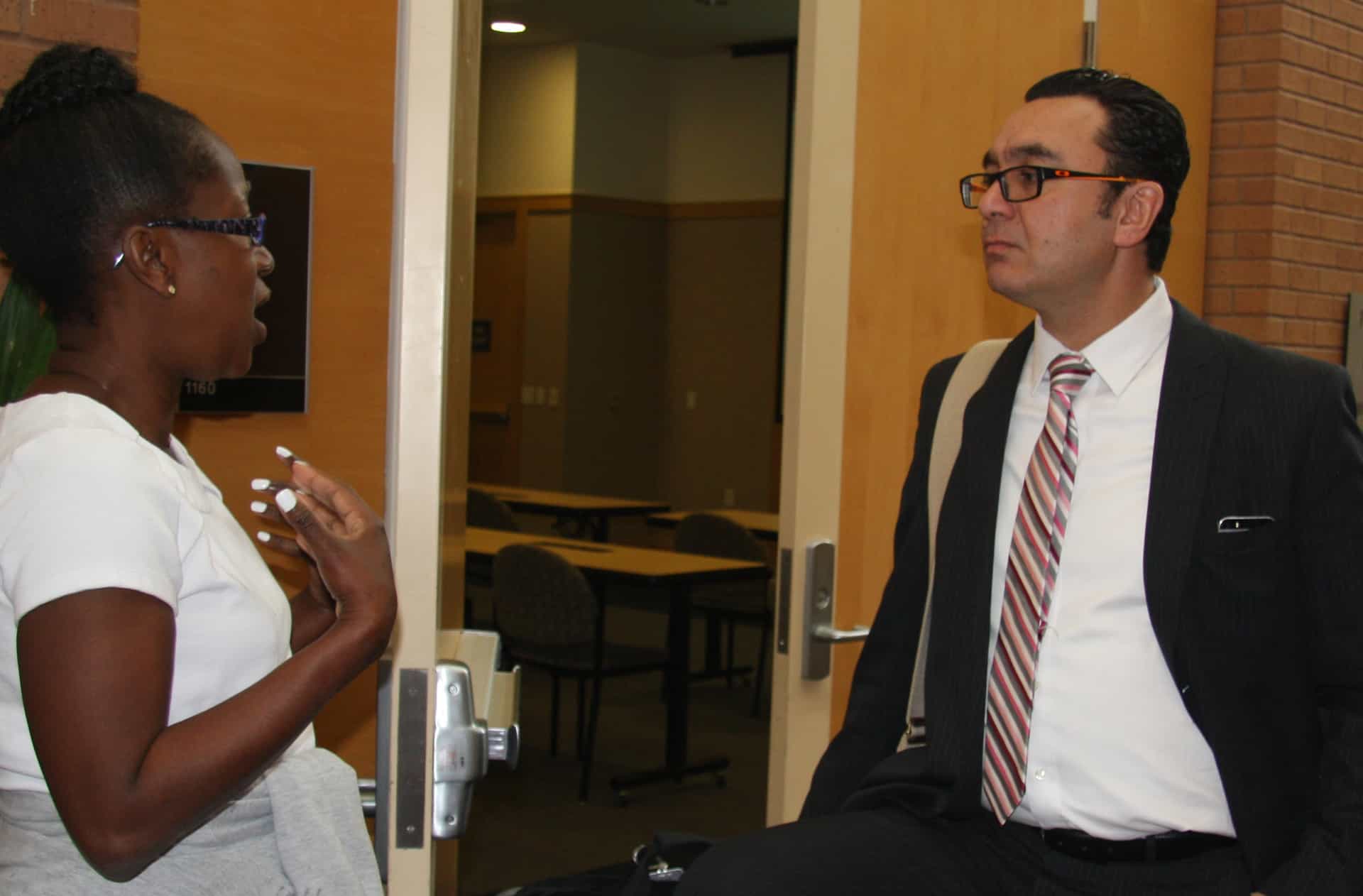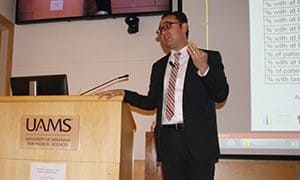UAMS Hosts 17th Annual Geriatrics Conference
| Oct. 4, 2016 | During the 17th annual Geriatrics and Long-Term Care Update recently at UAMS, about 160 geriatrics professionals and educators learned what’s new in caring for older patients, giving them the tools to achieve what a guest speaker called “the Triple Aim.”
The Triple Aim is a set of goals developed at the Institute of Healthcare Improvement designed for improving patient experience and the health of populations while also reducing the per capita cost of health care.

Penny Kris-Etherton, Ph.D., R.D., left, talks with Gohar Azhar, M.D., after Etherton spoke at the Geriatrics Update. Azhar is co-director of the Cardiovascular Aging Program in the UAMS College of Medicine and a physician scientist at the Reynolds Institute on Aging.
Held from Sept. 22-24 at the UAMS Donald W. Reynolds Institute on Aging, speakers, presentations and expert panels covered a range of topics from fall injury prevention and cancer screening for older adults to legal and social issues in geriatric care. The conference was sponsored the Arkansas Geriatric Education Collaborative at UAMS.
The conference has been supported annually by Jeanne Wei, M.D., Ph.D., director of the Reynolds Institute, to provide the latest information to physicians and other health professionals, as well as caregivers to the aging population.
“Speakers at the update aren’t presenting abstract concepts,” Wei said. “The updates are giving important and practical information to professionals directly involved in senior care. Feedback from this year and in past years has shown the tremendous value that these updates have in communicating the latest findings and best practices in geriatrics. Dr. Malaz Boustani’s presentation is just one of many strong examples of that value.”
Update guest speaker Boustani is a professor of aging research and professor of medicine at Indiana University and center scientist for the Indiana University Center for Aging Research in Indianapolis. Along with a team of other research physicians at the university’s hospital, Boustani took part in developing and implementing a new model of care, the Aging Brain Care model.
“We have produced one of the few models of care that accomplishes the Triple Aim,” Boustani said. “This is why those at Centers for Medicare & Medicaid Services are working hard to remove barriers to implementing this model across the United States.”
Boustani explained how Aging Brain Care focuses on older patients who have illnesses like pneumonia that require hospitalization and have either some cognitive impairment or dementia. The initiative was able to show improvements in patient health while reducing emergency room visits after discharge and rehospitalizations by about 50 percent. It also shortened the average hospital stay for those patients from seven to five days and produced a net savings per patient of $2,500.
To achieve those measures, Boustani said the hospital used a team-approach to care that included identifying and treating delirium and pneumonia, ensuring that patients received the right medication, problem-solving coaching for caregivers as well as support group help and crisis management. A care coordinator assistant also gathers patient data and helps the patient and patient’s family navigate the health system.
Another guest speaker, Penny Kris-Etherton, Ph.D., R.D., distinguished professor of nutrition in the Department of Nutritional Sciences at Pennsylvania State University in University Park, Pennsylvania, updated attendees on the latest research findings regarding the diet, older patients and cardiovascular health risks.
Thirteen geriatrics research posters also were on display at the conference. A number attended from out of state, including some who have participated for as many as 12 consecutive years.

